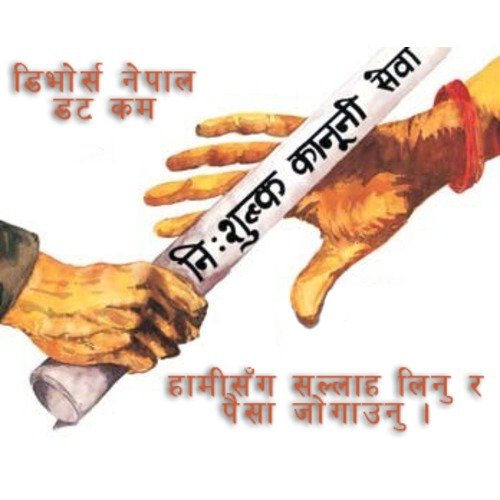Best Bankruptcy & Debt Lawyers in Pokhara
Share your needs with us, get contacted by law firms.
Free. Takes 2 min.
List of the best lawyers in Pokhara, Nepal
About Bankruptcy & Debt Law in Pokhara, Nepal
Bankruptcy and Debt Law in Pokhara, Nepal governs issues related to insolvency of individuals and businesses. Bankruptcy law provides a process by which individuals or businesses that are unable to pay their debts can seek relief, either by negotiating payment plans with creditors or liquidating assets to pay off debts. The Nepalese insolvency law is primarily governed by the Insolvency Act, 2006 which provides for a smooth process of debt recovery and protection to the debtor.
Why You May Need a Lawyer
Dealing with bankruptcy or overwhelming debt can be stressful and difficult to manage without proper guidance. A lawyer who is well-versed in bankruptcy and debt law can provide essential advice, help you understand your rights, prepare and file necessary paperwork, and advocate for you with creditors or in court. Furthermore, a lawyer can guide you to make informed decisions and prevent you from falling into legal pitfalls around asset management and debt repayments.
Local Laws Overview
In Pokhara, Nepal, the insolvency law allows for both voluntary liquidation where a debtor can voluntarily opt for insolvency and involuntary liquidation where creditors compel a debtor into insolvency. The Insolvency Act, 2006 also provides for an 'insolvency practitioner,' who plays a key role in managing the liquidation or rehab process. However, before declaring bankruptcy, options like repayment schemes, restructuring and consolidation are also explored under the Act depending on the financial situation.
Frequently Asked Questions
1. What is the process for filing for bankruptcy in Pokhara, Nepal?
The process involves filing a petition with the relevant court, either voluntarily or by creditors. If approved, the court appoints an insolvency practitioner to manage the assets and repay the debts.
2. What happens to my assets in bankruptcy?
Once bankruptcy is declared, the insolvency practitioner will have control over your assets and he/she may sell some or all of them to repay your debts.
3. Can all debts be discharged in bankruptcy?
No, certain types of debts, including government taxes, child support obligations, and specific types of court-ordered payments, may not be discharged in bankruptcy.
4. Is there a possibility to reorganize rather than liquidate under Nepalese bankruptcy law?
Yes, the Insolvency Act provides a provision for reorganization of businesses, usually through either a consolidation of debts, revised terms, or repayment scheme.
5. Can a business continue to operate after declaring bankruptcy?
Under certain circumstances, and with court approval, a business may be allowed to continue operations during the bankruptcy process.
Additional Resources
For more comprehensive advice, you can consult with the Office of the Company Registrar, Nepal Bar Association and Central Department of Law, Tribhuvan University. They provide valuable resources regarding insolvency laws and procedures and can offer references to legal professionals practicing in this field.
Next Steps
If faced with bankruptcy or unmanageable debt, it is crucial to take prompt action. You should first seek advice from a legal professional specialized in bankruptcy & debt. They can guide you through the legal processes, clarify your options, and help devise strategies. You may also want to collect and organize all relevant financial documents to make the process smoother.
Lawzana helps you find the best lawyers and law firms in Pokhara through a curated and pre-screened list of qualified legal professionals. Our platform offers rankings and detailed profiles of attorneys and law firms, allowing you to compare based on practice areas, including Bankruptcy & Debt, experience, and client feedback.
Each profile includes a description of the firm's areas of practice, client reviews, team members and partners, year of establishment, spoken languages, office locations, contact information, social media presence, and any published articles or resources. Most firms on our platform speak English and are experienced in both local and international legal matters.
Get a quote from top-rated law firms in Pokhara, Nepal — quickly, securely, and without unnecessary hassle.
Disclaimer:
The information provided on this page is for general informational purposes only and does not constitute legal advice. While we strive to ensure the accuracy and relevance of the content, legal information may change over time, and interpretations of the law can vary. You should always consult with a qualified legal professional for advice specific to your situation.
We disclaim all liability for actions taken or not taken based on the content of this page. If you believe any information is incorrect or outdated, please contact us, and we will review and update it where appropriate.
Browse bankruptcy & debt law firms by service in Pokhara, Nepal
Pokhara, Nepal Attorneys in related practice areas.








